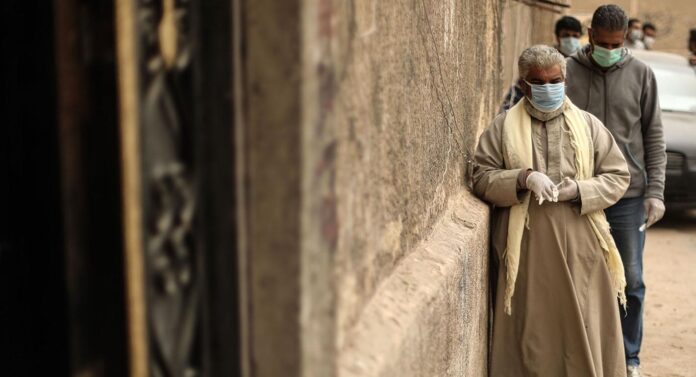Author: Sherif Mohyeldeen
Affiliation: Carnegie Middle East Centre
Organization/Publisher: Carnegie Middle East Centre
Date/Place: November 11, 2020/ Beirut, Lebanon
Type of Literature: Article
Word Count: 2286
Keywords: Egypt, Healthcare System, Border Regions, Health Budget
Brief:
Sherif Mohyeldeen discusses the situation of the health system in Egypt after the pandemic and evaluates the capability of it to respond to the needs of the public, especially to border areas. He argues that the primary problem is the authorities’ mismanagement of the healthcare services in border governorates, rather than limited financial resources or investment in the health sector. Mohyeldeen reports two contradictory narratives regarding health service in Egypt’s periphery. The public narrative conceives the shortcomings of the health system as the marginalization of the border areas as part of the historical background of the periphery in centralized Egypt. On the other hand, the state’s narrative is that health services are outstanding and the only problems occur due to financial shortages. He claims that the truth lies in between these two narratives. Both narratives are flawed in a way or another. He identifies some challenges to the health system in peripheral areas. One challenge is that doctors have no real motivation to work in such areas due to difficult working and living conditions, and low quality of healthcare. This shows the failure of the government to match its increased expenditure with effective management. This also could be understood both quantitatively and qualitatively. Quantitatively, the total number of doctors working under the health ministry is dramatically declining because of low salaries, deteriorating medical infrastructure, and safety procedures. Moreover, there is an imbalanced distribution of doctors between the center and the periphery, and even between the urban areas and main cities of the border governorates and the surrounding villages. Qualitatively, the quality of the doctors working in border areas is remarkably less compared to their counterparts in other parts of the country due to the appointment system and little opportunity to learn from experienced doctors who are concentrated in the capital and main cities. To sum up, the Egyptian government lacks organizational capability and management rather than intentionally marginalizes border regions and neglects their right to health services. Finally, the author suggests that non-profit organizations’ investment in border areas show a sustainable and high-quality future alternative to public investment in the healthcare sector. He emphasizes the necessity to change the marginalization perceptions of the communities in border areas since it dangerously affects national security and stability. Accordingly, he recommends that the government should provide incentives and training for doctors working in border regions as well as encourage sustainable initiatives in these areas.
By: Yomna Süleyman, CIGA Research Assistant




